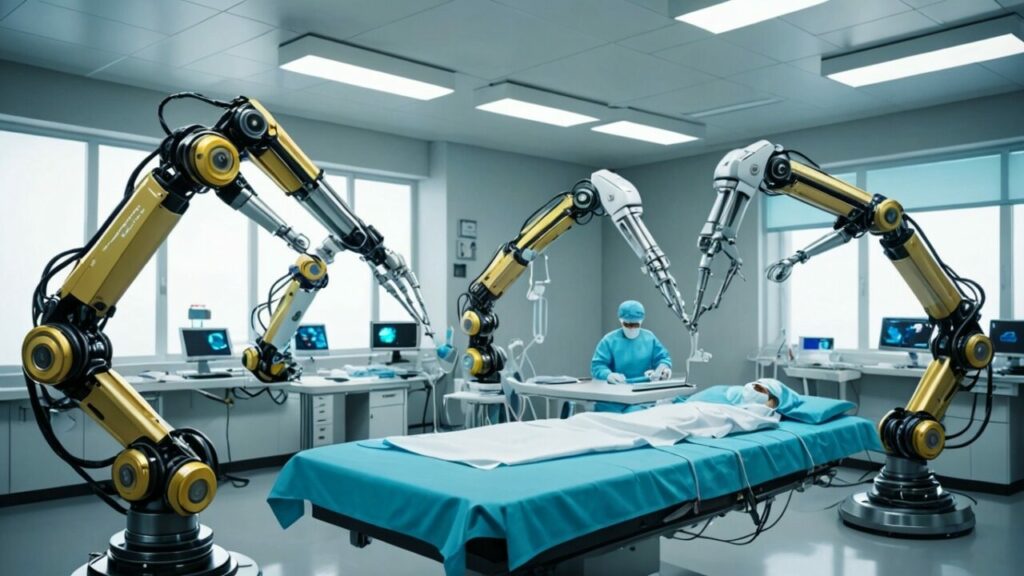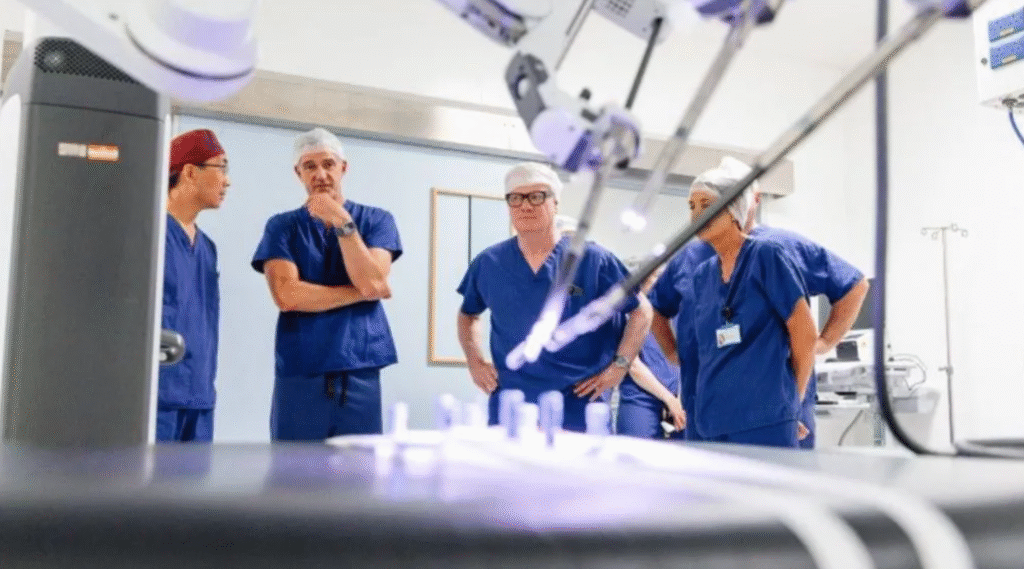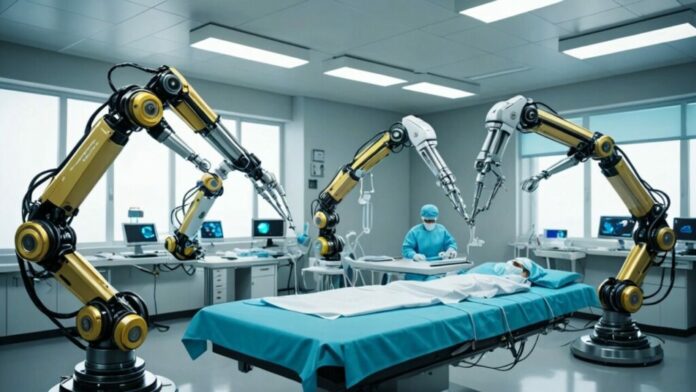Hospital AI Technology Innovations Transforming Patient Care
The hospital AI technology innovations introduced by the Royal Wolverhampton NHS Trust are reshaping the way patients experience healthcare, from reducing paperwork delays to improving surgical precision. By embedding artificial intelligence (AI) into everyday medical practice, the trust is not only improving patient outcomes but also streamlining workloads for clinicians.
One of the most impressive examples is the CLEARNotes system, an AI tool that listens to doctor-patient conversations and automatically generates structured summaries. This has reduced clinic letter turnaround times from a week down to just one or two days, marking a huge improvement in efficiency and patient communication.

Hospital AI Technology Innovations in Documentation
Documentation has always been a time-consuming aspect of healthcare, often pulling doctors away from direct patient care. With CLEARNotes, however, paperwork has been drastically reduced. According to Dr. Yat Li, consultant anaesthetist and chief clinical information officer, productivity has increased by 25% in one clinic, all while maintaining high standards of clinical safety and governance.
This AI-driven system ensures clinicians spend more time with patients and less time typing reports. It also speeds up correspondence, ensuring patients and families receive updates in days rather than weeks.
Cutting-Edge Surgery with Hospital AI Technology Innovations
Perhaps the most revolutionary change comes in the operating room. At New Cross Hospital, the trust has deployed two Da Vinci Xi surgical robots, which are being used weekly in urology, cardiothoracic, gynaecology, and colorectal procedures.
Compared to traditional keyhole surgery, robotic-assisted operations offer greater dexterity and precision. Surgeons control instruments via a console equipped with a 3D camera, making movements smoother and more accurate. This means shorter hospital stays, faster recovery times, and less pain for patients.
David Mak, a surgeon at the trust, recently demonstrated the system to government officials, including Science, Innovation and Technology Secretary Peter Kyle, who praised the innovative approach to healthcare delivery.
Hospital AI Technology Innovations in Pre-Operative Care
Beyond surgery, the trust has also introduced My Pre-Op, a digital questionnaire that allows patients to complete pre-operative assessments at home.
This simple but effective tool helps clinicians identify risks early while reducing the need for unnecessary hospital visits. Patients benefit from greater convenience, and clinicians gain better insights into a patient’s readiness for surgery. This digital-first approach is one of many steps the trust is taking to make healthcare smarter and more patient-centered.

Government Praise for Hospital AI Technology Innovations
During his visit, Peter Kyle was joined by West Midlands mayor Richard Parker and trust CEO Joe Chadwick-Bell. Together, they observed how AI-driven systems are making a measurable difference in both administration and surgery.
Kyle described the technology as “inspiring”, particularly noting how robotic surgery leads to quicker recoveries. He praised the trust for exploring these advancements safely and effectively, adding that innovations like these are critical to the future of the NHS.
The Impact of Hospital AI Technology Innovations on Patients
The benefits of AI are already clear in three major areas:
-
Improved communication: Faster clinic letters and updates.
-
Better surgical outcomes: Increased precision, reduced complications, quicker recovery.
-
Convenience for patients: Digital assessments that minimize unnecessary hospital trips.
For patients, these changes mean more personalized care, less time waiting, and better results from treatments and surgeries. For staff, AI reduces administrative burden, freeing them to focus on their core mission—treating patients.
Challenges and Future of Hospital AI Technology Innovations
While the Royal Wolverhampton NHS Trust is setting the pace, challenges remain. Data security, cost of new technologies, and staff training are all essential considerations in the wider rollout of AI systems across the NHS.
However, the momentum is strong. With government support and patient-centered design, AI in healthcare is expected to grow rapidly in the coming years. Hospitals across the UK and beyond are closely watching the Wolverhampton model to learn how best to integrate artificial intelligence into daily practice.
NHS official AI and digital transformation initiatives
Why Hospital AI Technology Innovations Matter
The hospital AI technology innovations at Wolverhampton represent more than just new machines or software—they symbolize a new era of patient care. Faster documentation, precision surgeries, and smarter pre-op tools showcase how AI can transform healthcare delivery.
As more hospitals embrace AI, patients will experience shorter waits, safer surgeries, and a healthcare system that is more responsive to their needs. The success of these technologies at the Royal Wolverhampton NHS Trust could become a blueprint for hospitals worldwide.

